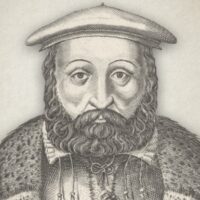
Absolute Predestination
Observations on the Divine Attributes, Necessary to be Premised, in Order to Our Better Understanding the Doctrine of Predestination.
Although the great and ever-blessed God is a being absolutely simple and infinitely remote from all shadow of composition, He is, nevertheless, in condescension to our weak and contracted faculties, represented in Scripture as possessed of divers Properties, or Attributes, which, though seemingly different from His Essence, are in reality essential to Him, and constitutive of His very Nature.
Of these attributes, those on which we shall now particularly descant (as being more immediately concerned in the ensuing subject) are the following ones: I., His eternal wisdom and foreknowledge; II., The absolute freedom and liberty of His will; III., The perpetuity and unchangeableness both of Himself and His decrees; IV., His omnipotence; V., His justice; VI., His mercy.
Without an explication of these, the doctrine of Predestination cannot be so well understood, and we shall, therefore, briefly consider them by way of preliminary to the main subject.
Jerome Zanchius (1516-1590) was an Italian pastor, theologian, writer and reformer during the Protestant Reformation. After the death of Calvin, Zanchius’ influence filled the void, which was copiously met by a large written ministry. Among his most popular works are, “Confession Of The Christian Religion”, “Observation On The Divine Attributes” and “The Doctrine Of Absolute Predestination”.
Jerome Zanchius on Absolute Predestination (Complete)




